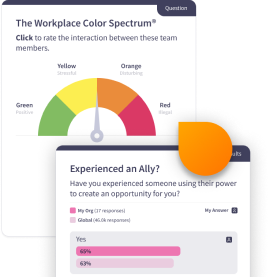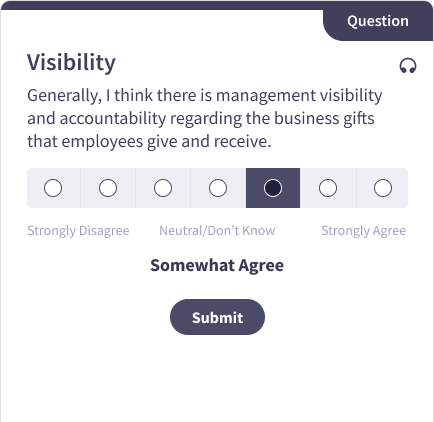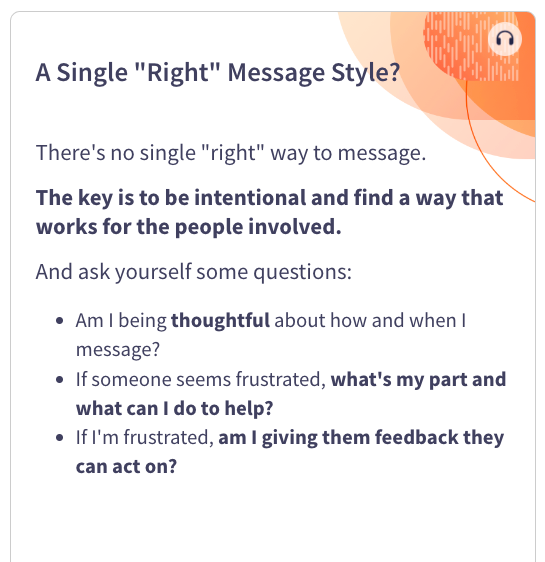
Strengthening Empathy and Awareness at Work
When we become close with our teammates and create great friendships, we can get carried away with the comments we make and opinions we share. However, that doesn’t mean all topics and feedback are appropriate in the workplace. Employees need to recognize when they’re making others uncomfortable, and where their opinion might be unwelcome.
Microlesson DescriptionIn this microlesson, we acknowledge that as humans, we all have blind spots. The lesson shows a colleague voicing her opinion to a close colleague about her personal choices, making everyone in the room uncomfortable. By focusing and improving on our social radar as a work skill, employees will recognize when they’re wandering into a territory that others find personal or offensive.
Key Concepts- At work, we'll all encounter and work with people who may not share our opinions, backgrounds, or experiences.
- Most people will give you quiet indicators if they're uncomfortable with your words or conduct.
- Developing social radar is a work skill that can help minimize conflict and support a healthy work culture.
- If you do misstep or misspeak, most people will cut you some slack if you realize your mistake and correct it.
Microlesson Features
- Employee sentiment pulsing questions that provide leaders with insights into their workforce's core cultural competencies
- Emtrain's Expert Answers tool, enabling employeees to submit anonymous questions about sensitive issues.
- Rich, contemporary video scences illustrating key concepts through realistic scenarios
- A data driven, skill-based approach to eLearning that establishes a shared language for employees.

Related Resources
Related Trainings
Frequently Asked Questions
Below are answers to common questions that employees and managers have about this topic. These FAQs provide a preview of what you’ll learn in this microlesson and why it matters.



